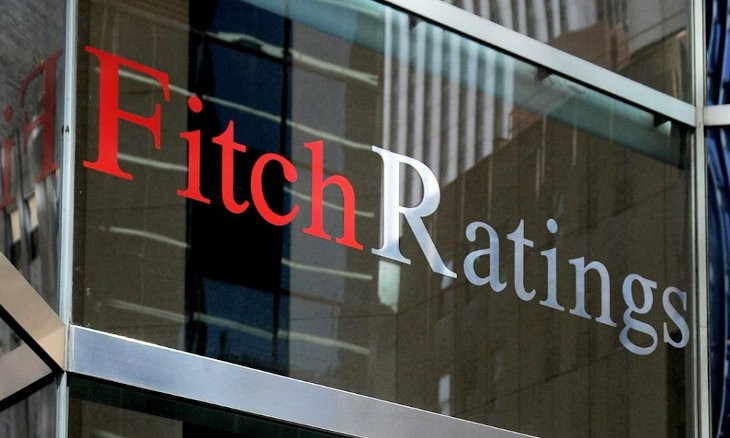Turkey's ruling AKP to put credit card bill on hold after public backlash
Turkey's ruling AKP group chair Abdullah Güler has noted that the bill to charge an annual 750 TL (22 dollars) defense industry fee on credit cards with limits exceeding 100,000 liras has been put on hold until 2025. The draft had drawn criticism from the public and opposition lawmakers.
Ceren Bayar / Gazete Duvar
Turkey's ruling Justice and Development Party (AKP) group chair Abdullah Güler on Oct. 15 said some articles of the defense industry fee on credit cards bill would be reconsidered and brought back after the budget discussions. Güler said, “We are postponing our proposal on the defense industry to allow for more detailed examination,” speaking to reporters after the parliamentary meeting on the bill.
Güler explained, “After examining the elements in the proposal more closely, some objections arose, including from our citizens. We are taking the proposal for a more detailed review and will reconsider it after the budget discussions. For now, we have completed the discussions.”
He also noted that President Recep Tayyip Erdoğan had ordered further review of the proposal, and it would be brought back to the agenda in 2025 after the budget process.
Discussions on the bill, which proposes an annual 750 TL (22 dollars) defense industry fee on credit cards with limits exceeding 100,000 liras (2,900 dollars), began in the Parliamentary Planning and Budget Commission.
After the ruling AKP deputy Hüseyin Altınsoy, one of the first signatories of the bill, made his presentation, opposition deputies took the floor.
The first to speak on behalf of the opposition was the main opposition Republican People’s Party (CHP) Planning and Budget Commission Spokesperson Rahmi Aşkın Türeli. Noting that the country already has the Defense Industry Presidency and the Defense Industry Support Fund with existing revenues, Türeli said, “If defense and national security are so important, they should be regulated through taxes, not by a fund.”
Criticizing the provision for a 750 TL deduction from credit cards with a 100,000 TL limit, Türeli said, "Taxes or fees are not taken based on a limit. A limit, by definition, is unused. Taxes are taken from income or spending. How can you charge for this?"
He added that a family of four living at the poverty line now exceeds 100,000 TL, saying, “A 100,000 TL limit doesn’t reflect a person’s financial strength. Does this even make sense?” Türeli warned that the regulation could increase unregistered credit card use, urging that the proposal be withdrawn immediately.
Following Türeli, pro-Kurdish Peoples’ Equality and Democracy (DEM) Party deputy Saruhan Oluç from Antalya spoke. Recalling Vice President Cevdet Yılmaz’s statement that there would be no taxes on the stock market or cryptocurrencies, Oluç said, "There is great resistance to taxing those who make large profits from the stock market and crypto assets. Unless you tax these areas, you won’t solve the current problem. You don’t tax the wealthy, but you tax the public, workers, farmers, retirees, and small businesses through various means. This is not the right way. People are already at their limit. What else are you going to take?”
Oluç also mentioned that multiple resources are funneled into the Defense Industry Support Fund, arguing that a "danger" perception is being created in society. He said, “It’s not possible for the conflict in the Middle East to affect Turkey. There’s a false perception that Turkey is under threat.”
The oppositional nationalist Good (İYİ) Party MP Erhan Usta said his party has supported budgets related to defense and security institutions but criticized the proposal, saying, “When you look at the envelope, it’s labeled as defense, but when you open it, there’s a tax inside.”
Criticizing the government's claim that the deduction method was chosen to avoid burdening the budget, Usta said, “Is the defense industry marginal? Why isn’t a share allocated from the budget?”
After general speeches on the bill regulating credit card deductions, the meeting ended without moving to the article discussions. Committee Chair Mehmet Muş did not set a new date for continuing discussions and pointed to after the budget talks.
(English version by Ayşenaz Toptaş)


 Credit card holders seek to lower limits after AKP's new law proposalEconomy
Credit card holders seek to lower limits after AKP's new law proposalEconomy Turkey aims to collect contribution to defence industry from credit cardsEconomy
Turkey aims to collect contribution to defence industry from credit cardsEconomy Fitch upgrades Turkey's rating on improved fiscal policyEconomy
Fitch upgrades Turkey's rating on improved fiscal policyEconomy